Cultural institutions play a crucial role in fostering the language and literature of a land. They harness the aspirations of people and offer a platform to share ideas and art, especially among the young. One institution which has done this relentlessly for the past 50 years is the Christ University Kannada Sangha.
Following the uncertainties left behind by the Karnataka Unification Movement, there was a growing need to unite the State on the basis of its linguistic and cultural identities. Contemporary values and challenges had to find literary expression to create a modern, progressive Kannada consciousness. To achieve this, the voice of a new generation of Kannadigas had to be heard.
Thus, was born CUKS – the brainchild of noted Kannada litterateur and then Head of the Department of Kannada in the college, the late Professor Chi. Srinivasaraju.
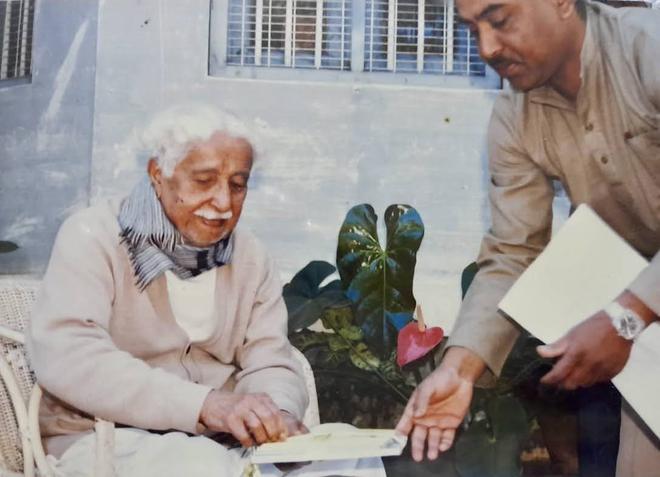
A cultural movement
The Kannada Sangha was formed on December 21, 1972, with the aim of nurturing young writers. Its first initiative was an essay competition in the name of novelist A.N. Krishna Rao (popularly known as Anakru). Ten years later, in 1982, the Sangha began a poetry competition in the name of Dr. Da.Ra. Bendre, one of the greatest Kannada poets of the 20th century.
“The Kannada Sangha’s primary focus, and biggest achievement, has been recognising, platforming and publishing student writers. Year after year, hundreds of students from across Karnataka have participated in the two competitions,” says Dr. Rathi M.T., coordinator of the Sangha and Associate Professor of Kannada at Christ University in Bengaluru.
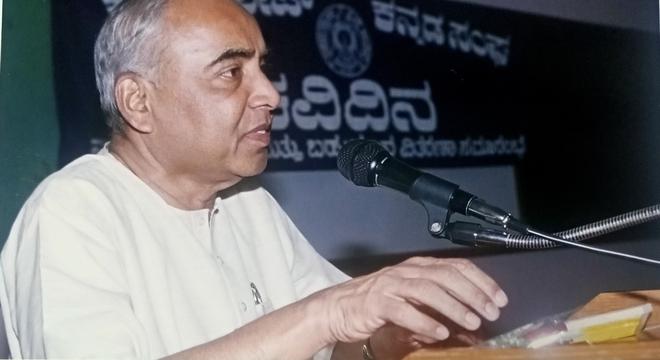
By the early 2000s, the quality of essays being submitted had dipped. In 2009, the essay competition was scrapped to make way for a short story competition, again in the name of Anakru. The Sangha’s competitions have since transformed the literary landscape, introducing to Kannada readers a whole new generation of accomplished writers, poets, critics, novelists, journalists and essayists.
“Many prominent names in the field of Kannada literature and journalism today, including Chintamani Kodlakere, H.S. Shivaprakash, Vikram Visaji, Kavita Rai, Muktayaka S.S., Cha Ha Raghunath, owe their first break to the essay and poetry competitions of the Kannada Sangha,” Dr. Rathi adds.
US-based poet Kavya P. Kadame has published seven poetry collections in the last 10 years. One of her books, Dhyanakke Thaarikina Hangilla, was awarded the 2014 Sahitya Akademi Yuva Puraskar. The foundation for all this, however, was laid at CUKS.
“When I was in college, CUKS was among the four competitions that prioritised student writers. It was our first introduction to the world of big Kannada writers. Hearing them speak at the annual event was very encouraging and opened the doors to a wealth of literary influences. So were the bagful of books we would take home as the prize,” says Kavya, who won the Bendre poetry competition six years in a row (2006-11).

As a publisher
It’s not just the competitions, but the Kannada Sangha’s work as a publisher that distinguishes it from other college-level Kannada Sanghas. In the 50 years since its inception, the Sangha has published a total of 256 books across genres.
Over 85 of these titles are the annual collections of prize-winning entries by students. “We believe that publishing these selected works makes aspiring writers more confident about pursuing writing as a career and also imparts legitimacy to their work,” Dr. Rathi says.
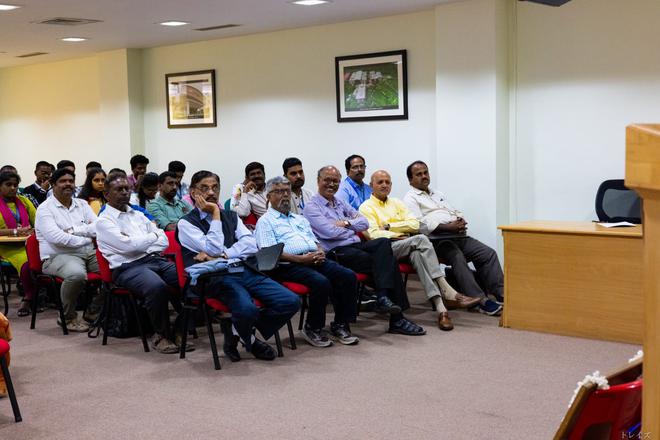
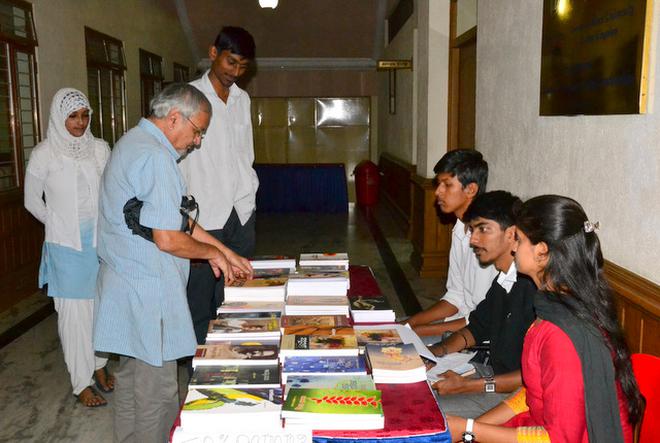
But the bulk of Sangha’s publications comprise books authored by established authors, including literary giants like Gopalkrishna Adiga, Pu.Thi. Narasimhachar, G.S. Shivarudrappa etc. Translations into Kannada from Hindi, Oriya, Bengali, Gujarati, Marathi, Tamil, Malayalam and English . Its publications have won prestigious awards, including two Central Sahitya Academy Awards and 10 State Sahitya Academy Awards.
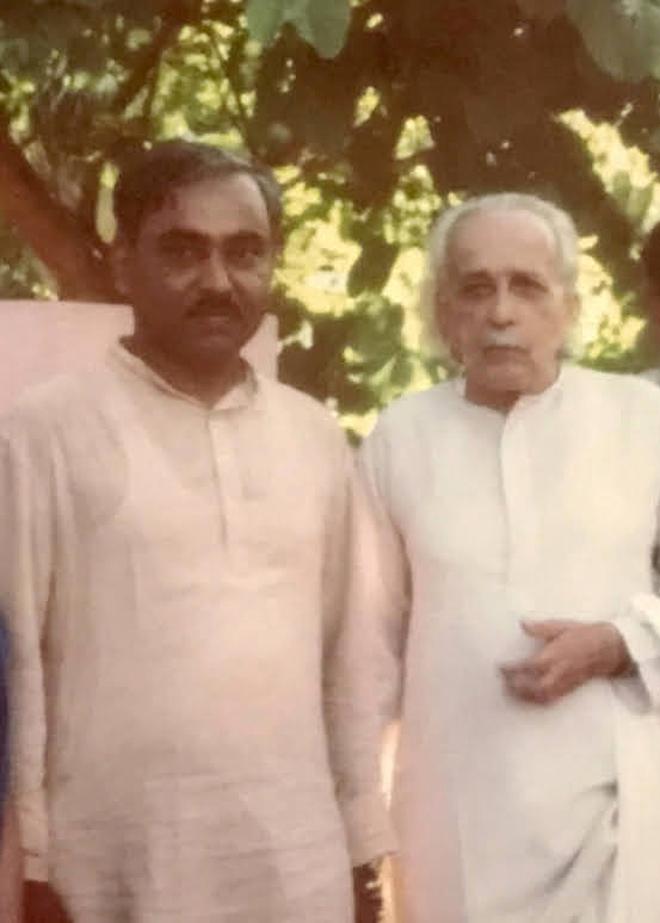
Stamp of quality, credibility
Publications by the Kannada Sangha come with a hallmark of quality, and for students, especially, this means a stamp of approval and a nod of appreciation from the best minds in Kannada literature.
“We would wait for the competition every year as it motivated us to write. Had it not been for the Sangha, I may not have delved deep into poetry and written as much as I did back then. Being published by the Kannada Sangha lent credibility to my words,” says Kavya.
Every year, 20 student submissions are shortlisted and compiled in the form of a book, released on January 31 in honour of Dr. Bendre’s birth anniversary. Apart from being felicitated at the event, the winners also get to interact with the noted poets, critics and writers of Kannada as part of a day-long workshop.
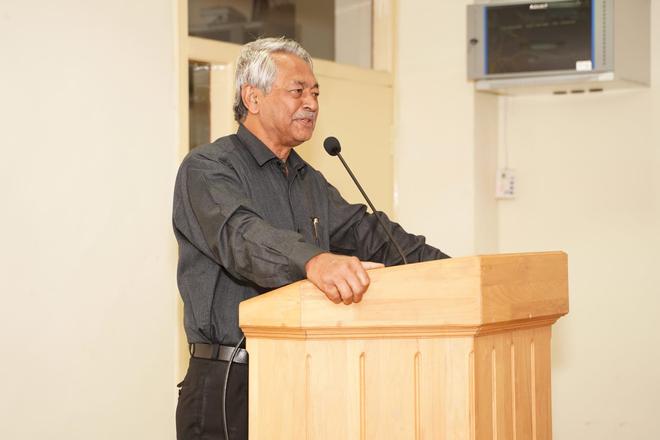
“We sponsor their travel and accommodation to ensure no student is left out because of financial hardship. At the workshop, renowned writers and jury members engage with the youngsters, teaching them how to write a poem or short story, how to hone their craft, and critically analyse their own reading process,” Dr. Rathi says.
“Meeting new people at the Sangha’s event also helped widen my literary network and circle of friends, many of whom are today well-known poets and writers. It was a friendship forged out of our love for literature,” Kavya adds.
Spreading its reach
Dr. Rathi acknowledges the contributions of the Christ University management, which has not only been encouraging of the Sangha’s work but also funds it entirely. To expand its reach, the Sangha began a public lecture series this year. “We invited experts from allied fields of literature, such as linguistics, criticism, translation, philosophy, among others. We hope to continue it.”
Another initiative where the Sangha has tried to propagate Kannada is Wikipedia writing. Every semester, students from across Sciences, Humanities, Social Sciences, Commerce and Management departments, who are also fluent in writing in Kannada, choose topics from their respective streams that do not have a Wikipedia entry and create a page for it. This voluntary activity has so far seen 2,000 Kannada articles being added to the online encyclopedia.







